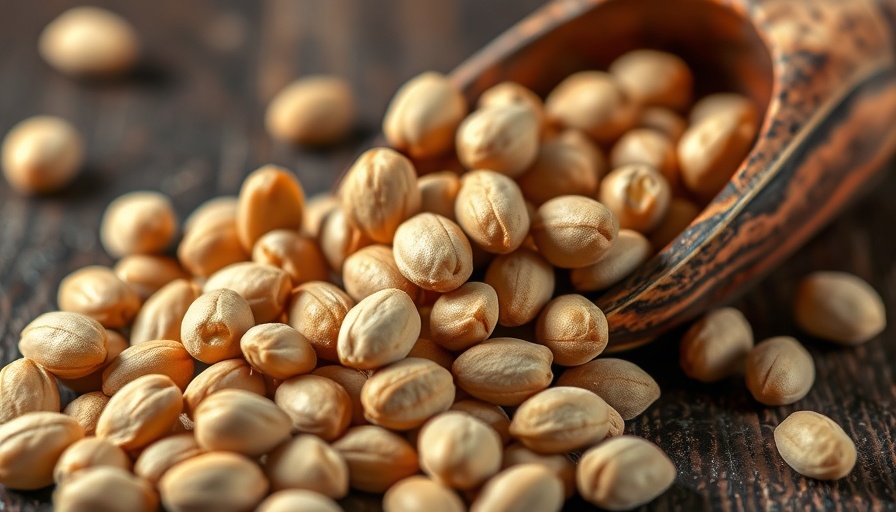
Understanding Dietary Diversity: A Double-Edged Sword
Dietary diversity plays a crucial role in meeting our nutritional needs, but it can also lead to overeating—a phenomenon that many might not realize is wired into our biology. Men aged 35-55, particularly professionals and fitness enthusiasts, often strive to fuel their bodies with the right nutrients. In this quest, they may unknowingly fall victim to the lure of an ever-expanding array of food options.
The Biology Behind Appetite and Variety
Research indicates that humans have an innate drive to diversify their diets. This tendency is visible even in infants who naturally choose a variety of foods over a single favorite. This phenomenon is known as sensory-specific satiety, where the pleasure derived from eating a certain food diminishes quickly after consumption, prompting the desire for something new. For men focused on fitness, this can become a double-edged sword—while eating a range of foods can ensure essential nutrients, it can also lead to excessive calorie intake.
How Overeating Sneaks Up
Studies show that participants eat significantly more calories when presented with varied meal options. For instance, one study highlighted that individuals consumed up to 60% more calories during a diverse four-course meal compared to a monotonous one. For middle to high-income men who value quality meals, understanding this pattern can help in meal planning. Mixing up flavors, textures, and colors may enhance the enjoyment of meals, but it can also trick our bodies into consuming more than needed, leading to weight management challenges.
The Modern Food Environment: Complexity and Challenges
In today’s supermarket-dominated world, the incredible variety of available foods can confuse even the most health-conscious individuals. The concept of a "supermarket diet," which has been shown to make lab rats gain weight, suggests that diversity in food options can undermine self-control. This phenomenon encourages professionals who are trying to maintain healthy lifestyles to be intentional about their food choices, focusing on nutrient-dense options rather than simply those that are available.
Practical Tips for Navigating Dietary Diversity
For men focusing on fitness and optimal nutrition, being aware of how variety can propel overeating is essential. Consider the following tips:
- Prioritize Whole Foods: Opt for fresh fruits, vegetables, lean proteins, and whole grains, which offer essential nutrients without excessive calories.
- Controlled Variety: Instead of presenting numerous options, limit the variety at meals to help regulate overall caloric intake.
- Mindful Eating: Practice mindfulness during meals, paying attention to hunger cues to prevent mindless overeating.
Conclusion: Striking the Right Balance
Embracing dietary diversity is vital for optimal health, especially for men who want to maximize their nutrition and fitness. However, awareness of its potential to lead to overeating is crucial. By being intentional in their meal planning and responsive to their body's cues, men can effectively manage their weight while enjoying the benefits of a diverse diet. Learning to strike this balance is not only a path to achieving fitness goals but also a fundamental aspect of overall well-being.
 Add Row
Add Row  Add
Add 




Write A Comment